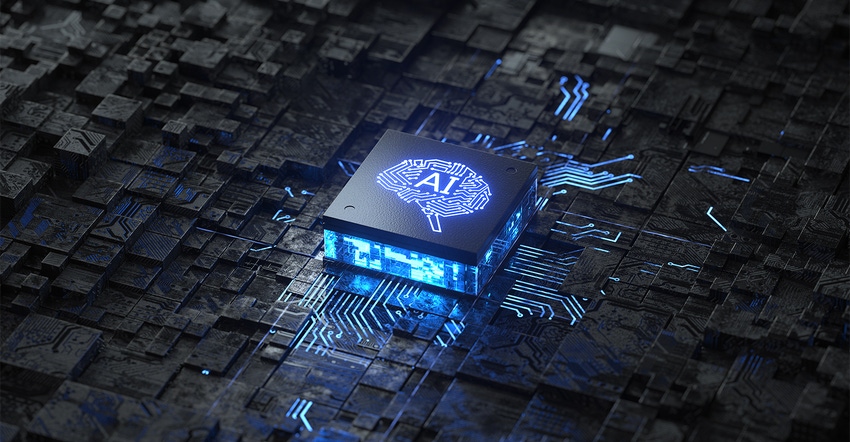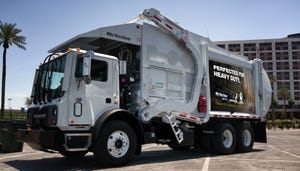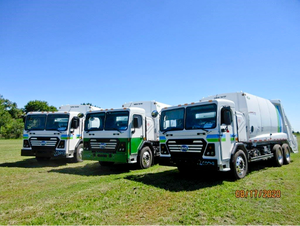AI Revolution Shaping the Waste Industry in 2024 and Beyond: Part Three
Part one and two of our series on artificial intelligence (AI) have explored valuable insights from industry professionals and AI experts. While we’ve been talking up AI with a positive light, the negatives can’t be ignored. One major concern making the headlines on our nightly news reports and throughout the waste industry is job displacement via AI taking over.

Parts one and two of our series on artificial intelligence (AI) have explored valuable insights from industry professionals and AI experts. While we’ve been talking up AI with a positive light, the negatives can’t be ignored. One major concern making the headlines on our nightly news reports and throughout the waste industry is job displacement via AI taking over.
For example, from another industry struggling with AI implementation and the ethics of it, we’re only a few weeks removed from a deal between SAG-AFTRA and Replica Studios, an AI voice technology company, for the licensing of actors’ voices for use in video games. A deal that has been met with extreme backlash from voice actors as they’ll lose work over tools like this. Gen AI is also a worry for people like me as, with a quick sentence, ChatGPT could have probably written this whole article and saved me a lot of time. Fortunately for you, I care too much so you’re stuck with a regular human.
So, with all that in mind, one area I thought was important to gain insight on AI in waste is job security. And as in other industries that are making a huge push for AI, people are losing jobs as companies don’t see a path for their employees to work alongside AI, causing a warranted fear among workers. Luckily, the panel of experts express that workers shouldn’t be concerned of being totally replaced and flushed out.
“AI should be viewed as an operational tool to improve efficiency and reduce the cost of the recycling process. Some sorting jobs may be replaced by robotics which use AI, but this is an opportunity to upskill workers from unsafe and repetitive tasks,” said JD Ambati, founder and CEO at EverestLabs.
“AI in waste and recycling won't necessarily steal jobs as many think; it will transform them. There are certainly some manual tasks that will be automated away, but there are enormous opportunities for upskilling, safer working conditions, and the creation of new roles that haven't existed before,” added Tanner Cook, CTO & Co-Founder, Clean Robotics.
“To ensure that AI tools will be used in collaboration, companies must invest in worker training, ensure the AI systems are designed for collaboration, and, most importantly, communicate about changes. The direction and momentum that AI has right now I think, means that companies will have to find a way for employees to work alongside AI, otherwise they’ll be left in the dust.”
“We’ve seen, and expect to continue to see, companies finding ways for employees to work alongside AI-driven systems. Reliance on manual labor for sortation has long held back the recycling industry. These are difficult and dangerous jobs, and recycling facilities are chronically understaffed. Plus, commodity cycles lead to businesses varying their staffing levels; consistency at the facility and commodity level creates staffing stability. Labor is the highest cost for recyclers in an industry with tight profit margins, but AI and automation can help bring down costs and make businesses more economically viable,” said Matanya Horowitz, founder and CEO, AMP Robotics.
WasteCon 2023 had a sizable focus on AI tools in the waste industry and, I believe, did an excellent job communicating how AI will work in the industry and what tools we can expect to see in the field. During Nicole Sroka’s, CEO of Mind Moves, Keynote during the event, she polled the audience on words they associate with AI, and there was an emerging theme: fear. Some of the top words that waste industry employees associate with AI were concern, scary, and The Terminator.
While the last entry is funny, The Terminator is an AI machine coming to eliminate you (if you happen to be a part of the Connor bloodline, more specifically) and the overtaking of machines.
The fear of AI is impacting plenty of industries, as the new technology is changing landscapes every day. But AI has clear advantages in waste, namely taking over dull, dirty, and dangerous jobs. We just don’t want to see AI completely replace teams. So, it is refreshing to hear leaders of AI in the waste industry stress that they and other companies need to balance real people with AI tools for success. As AI evolves, companies and employees will need to keep up but with the end goal in mind to work together with the machines, rather than against them. As long as the T-1000 doesn’t show up at your office, we’re in good hands.
Once our fears and concerns of AI are addressed, we can look at infinite possibilities that exist and how working alongside AI can improve our day to day.
“The prospect of AI reaching and surpassing human levels of intelligence presents a supreme opportunity to tackle complex challenges and unlock novel possibilities. AI will accelerate scientific breakthroughs in medicine and human health, environmental conservation, and social equality. The emergent landscape of AI means that we are stepping into an era ripe with unbound creativity and inventive potential. Of course, we must be vigilant of its misuse and unintended consequences, steering towards ethical AI development,” said Sorka.
“If we choose to harness its power for good, the positive impact AI could have on our world is substantial and thereby exhilarating to be shaping.”
AI is going to shape our world in incredible and drastic ways and the better we understand it, the better we implement it into our lives, and the better we learn to work with it, the better off we’ll all be. After talking with several people in the industry, leaders in Waste and AI, and other AI experts and putting some common fears to rest, I feel more confident than ever that the waste industry is on the right track with its use of AI. I can’t wait to see what improvements are in store for us next.
About the Author(s)
You May Also Like




